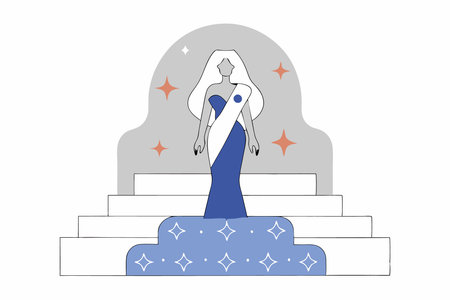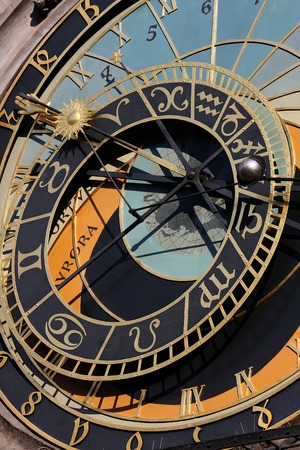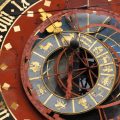Introduction to Cancerian Traits in British Context
Within the grand tapestry of British society, the archetype of the Cancerian—those born under the zodiac sign Cancer—has long held a unique and deeply resonant place. Endowed with emotional intelligence, steadfast loyalty, and a profound intuition, Cancerians have contributed significantly to the cultural and historical fabric of the United Kingdom. From the stately halls of Westminster to the bustling streets of modern London, these traits have been both celebrated and quietly influential. The British reverence for emotional restraint is intriguingly balanced by a subtle admiration for the empathetic and nurturing qualities that Cancerians embody. Such characteristics are woven into national narratives, manifesting in public figures who blend tradition with innovation, compassion with resoluteness. As we embark on an exploration of historic and modern icons, it becomes evident how quintessentially Cancerian attributes have shaped—and continue to shape—the nation’s identity, offering a nuanced counterpoint to stereotypical British reserve while reinforcing values held dear across generations.
2. Historic Icons: Prominent British Cancerians through the Ages
Throughout British history, individuals born under the sign of Cancer have left an indelible mark on the nation’s identity and development. The Cancerian traits of intuition, sensitivity, and tenacity are visible in many historic icons who have shaped the United Kingdom’s cultural, political, and literary landscape. These figures range from revered monarchs to influential statesmen and legendary writers, each contributing uniquely to the nation’s story.
Royalty and Leadership
The British monarchy has seen several notable Cancerians ascend the throne. Their leadership styles often combined a nurturing spirit with resolute decision-making, embodying both the protective and determined nature of their astrological sign. Among them:
| Name | Role | Years Active | Key Contributions |
|---|---|---|---|
| King George V | Monarch | 1910–1936 | Steered Britain through World War I; modernised royal image |
| Princess Diana | Princess of Wales | 1981–1997 | Charity work, humanitarian legacy, transformation of royal public engagement |
Political Figures: Guiding the Nation
Cancerian leaders in politics have often been remembered for their empathetic governance and ability to unite people during tumultuous times. Their impact resonates in moments when steadfastness and care were most needed:
| Name | Role | Era | Main Achievements |
|---|---|---|---|
| Sir Edmund Hillary* | Pioneering Figure (UK ties) | 20th Century | First ascent of Everest with Tenzing Norgay; symbolised postwar British resilience* |
*Note:
The inclusion reflects broad Commonwealth ties and the enduring influence on British collective memory.
Literary Legends: Shaping Cultural Identity
The world of British literature boasts several Cancerians whose works continue to inspire generations. Their deep emotional insights and imagination have given voice to the complexities of national life:
| Name | Notable Works | Era |
|---|---|---|
| George Orwell (Eric Arthur Blair) | “1984”, “Animal Farm” | Early-Mid 20th Century |
A Lasting Legacy
The legacies of these historic Cancerians endure not merely as footnotes but as pillars upon which modern Britain stands. Their influence extends beyond their lifetimes, shaping everything from social reform to artistic expression. As we trace their journeys through history, we observe how Cancerian values—care, intuition, and resilience—remain woven into the very fabric of British culture.

3. Modern Icons: Contemporary British Cancerians
As we shift our gaze from the storied past to the dynamic present, a constellation of contemporary British Cancerians emerges, each leaving an indelible mark upon the nation’s cultural and social landscape. These modern figures—drawn from the arts, sports, and public life—embody the nuanced characteristics traditionally associated with Cancer: emotional depth, resilience, creativity, and a profound connection to home and heritage.
The Artistic Sphere: Sensitivity Meets Innovation
Within the world of arts and entertainment, British Cancerians have captivated audiences not merely through technical prowess but by weaving emotion into their craft. Take Benedict Cumberbatch, whose compelling performances are infused with empathy and introspective nuance. Similarly, Cheryl (formerly Cheryl Cole) has charmed the nation with her heartfelt music and relatable presence on television, drawing on her Cancerian intuition to connect deeply with fans.
Sporting Spirits: Tenacity and Teamwork
In sport, contemporary Cancerians such as Lewis Hamilton exemplify determination and adaptive strategy—hallmarks of their zodiac sign. Hamilton’s journey from Stevenage to global Formula 1 dominance is testament not only to individual talent but also to the nurturing support systems that Cancerians cherish. Their ability to foster unity within teams while maintaining personal drive reflects a uniquely British blend of ambition tempered by humility.
Civic Influence: Compassion in Public Life
Public figures like Prince William demonstrate how Cancerian values play out in leadership roles. His advocacy for mental health initiatives reveals a compassionate approach rooted in empathy and familial responsibility, qualities that resonate strongly within Britain’s evolving social conscience. Such individuals help shape national dialogues around community welfare and progressive change.
Together, these modern icons illustrate how Cancerian attributes continue to inform and inspire Britain’s collective identity. Their influence is woven through contemporary culture—a testament to the enduring relevance of this water sign in guiding both public sentiment and creative innovation across the United Kingdom.
4. Cultural Impact: Cancerians in British Media and Literature
The indelible mark left by Cancerian icons upon British cultural life is reflected not only through individual achievement but also in the archetypal representations that permeate literature, film, and popular media. Throughout the centuries, the Cancerian traits of emotional depth, loyalty, intuition, and protectiveness have served as both inspiration and narrative device, shaping the nations collective imagination.
Cancerian Archetypes in Classic British Literature
From Jane Austen’s quietly resilient heroines to Charles Dickens’s nurturing matriarchs, British literature abounds with characters whose sensibilities echo traditional Cancerian qualities. These figures often serve as emotional anchors within their respective narratives—balancing duty with compassion, and tradition with an innate understanding of human frailty. The emotional complexity found in such characters mirrors the nuanced temperament attributed to Cancer-born individuals.
Table 1: Notable Cancerian Traits in British Literary Characters
| Character | Work | Cancerian Trait Exemplified |
|---|---|---|
| Mrs. Bennet | Pride and Prejudice (Austen) | Protectiveness & Family Devotion |
| Beth March (inspired by British sensibility) | Little Women (Alcott) | Nurturing & Emotional Sensitivity |
| Mrs. Havisham | Great Expectations (Dickens) | Emotional Memory & Sentimentality |
| Lily Briscoe | To the Lighthouse (Woolf) | Intuition & Inner Worldliness |
Cancerians on Stage and Screen: Enduring Tropes
British cinema and television have likewise embraced the Cancerian archetype. From period dramas to contemporary series, emotionally attuned characters—often played or created by real-life Cancerians—resonate deeply with audiences. The quintessential “British mum” trope, omnipresent in soaps like EastEnders, draws heavily upon the signs association with home and familial bonds. Similarly, films set against the backdrop of wartime Britain commonly feature steadfast caretakers embodying Cancerian resilience amid adversity.
Table 2: Cancerian Themes in British Popular Media
| Media Example | Cancerian Theme Represented |
|---|---|
| The Crown (TV Series) | Duty versus Personal Feeling; Family Legacy |
| Billy Elliot (Film) | Nurturing Support Against Adversity |
| Downton Abbey (TV Series) | Loyalty & Tradition; Emotional Undercurrents in Aristocratic Life |
| Call the Midwife (TV Series) | Caregiving; Compassion in Community Service |
A Lasting Influence on National Identity
The prevalence of Cancerian motifs across British artistic mediums is no coincidence. These recurring themes reflect a national affinity for introspection, emotional honesty, and a reverence for continuity—values at the heart of both historic and modern British consciousness. As such, Cancerians continue to shape not only the stories Britain tells itself but also the manner in which it interprets its own evolving identity.
5. Legacy and Influence: The Enduring Mark of Cancerians
The imprint left by British Cancerians, both historic and modern, is indelibly woven into the fabric of national consciousness. Their influence traverses generations, shaping not only public discourse but also the evolving definition of what it means to be British in a global context.
Cancerians as Mirrors of National Sentiment
Cancerians are often credited with a heightened sensitivity to the collective mood and sentiment of society. Figures such as Diana, Princess of Wales, embodied compassion and vulnerability—qualities that resonated with the public and catalysed shifts in attitudes towards mental health, charity, and empathy. In politics, leaders like George Orwell articulated the anxieties and aspirations of a nation through their works, echoing the Cancerian trait of deep introspection paired with an acute awareness of social currents.
Shaping Public Discourse
Historically, Cancerian icons have been pivotal in driving conversations around identity and belonging. Their emotional intelligence allows them to tap into undercurrents often overlooked by others, bringing forth narratives that challenge established norms. Whether through literature, music, or activism, these individuals invite the nation to reflect on its values and priorities. They often act as catalysts for change—encouraging inclusivity, resilience, and a sense of shared heritage.
Modern Relevance
In contemporary times, Cancerian figures continue to shape debates surrounding multiculturalism, social justice, and national pride. Their enduring relevance lies in their ability to balance tradition with progressiveness. By championing causes close to home while embracing broader humanitarian concerns, modern British Cancerians reinforce Britain’s image as both a guardian of history and a beacon of forward-thinking values.
A Lasting Cultural Legacy
The legacy of British Cancerians is thus characterised by an ongoing dialogue between past achievements and present challenges. Their contributions persist in shaping how Britons view themselves and their place in the world—rooted in compassion, guided by intuition, and ever-adaptive to change. As new generations arise, the mark left by these icons continues to inspire reflection and renewal across all spheres of British life.
6. Conclusion: The Unique Place of Cancerians in Britain’s Tapestry
As we draw the curtain on our exploration of British Cancerians, both historic and modern, it becomes apparent that their legacy is deeply woven into the fabric of national identity. The intricate interplay between their emotional intelligence, protective instincts, and creative flair has produced a lineage of individuals who resonate profoundly with the British public. From royal figures whose empathy shaped an era, to contemporary icons redefining popular culture, the impact of Cancerians is anything but fleeting.
The interconnected legacies of these personalities highlight not only their personal achievements but also their collective influence on British sensibilities. Each Cancerian—whether a statesman guiding the nation through turbulent waters or an artist capturing the spirit of a generation—contributes to a broader narrative that champions resilience, compassion, and cultural innovation. Their stories serve as reminders of how personal qualities can ripple outward, influencing everything from public discourse to artistic trends.
Moreover, the ongoing relevance of these figures underlines a uniquely British appreciation for authenticity and emotional depth. In a society often characterised by its stoic exterior, Cancerians have provided moments of vulnerability and sincerity that have shifted perceptions and inspired change. Their ability to bridge tradition with progress ensures that their contributions remain pertinent in an ever-evolving landscape.
In reflecting upon these intertwined legacies, one finds not just individual triumphs but a constellation of influence—each star illuminating different facets of the British experience. It is this confluence of historical weight and modern dynamism that cements Cancerians as enduring icons within Britain’s cultural tapestry.


